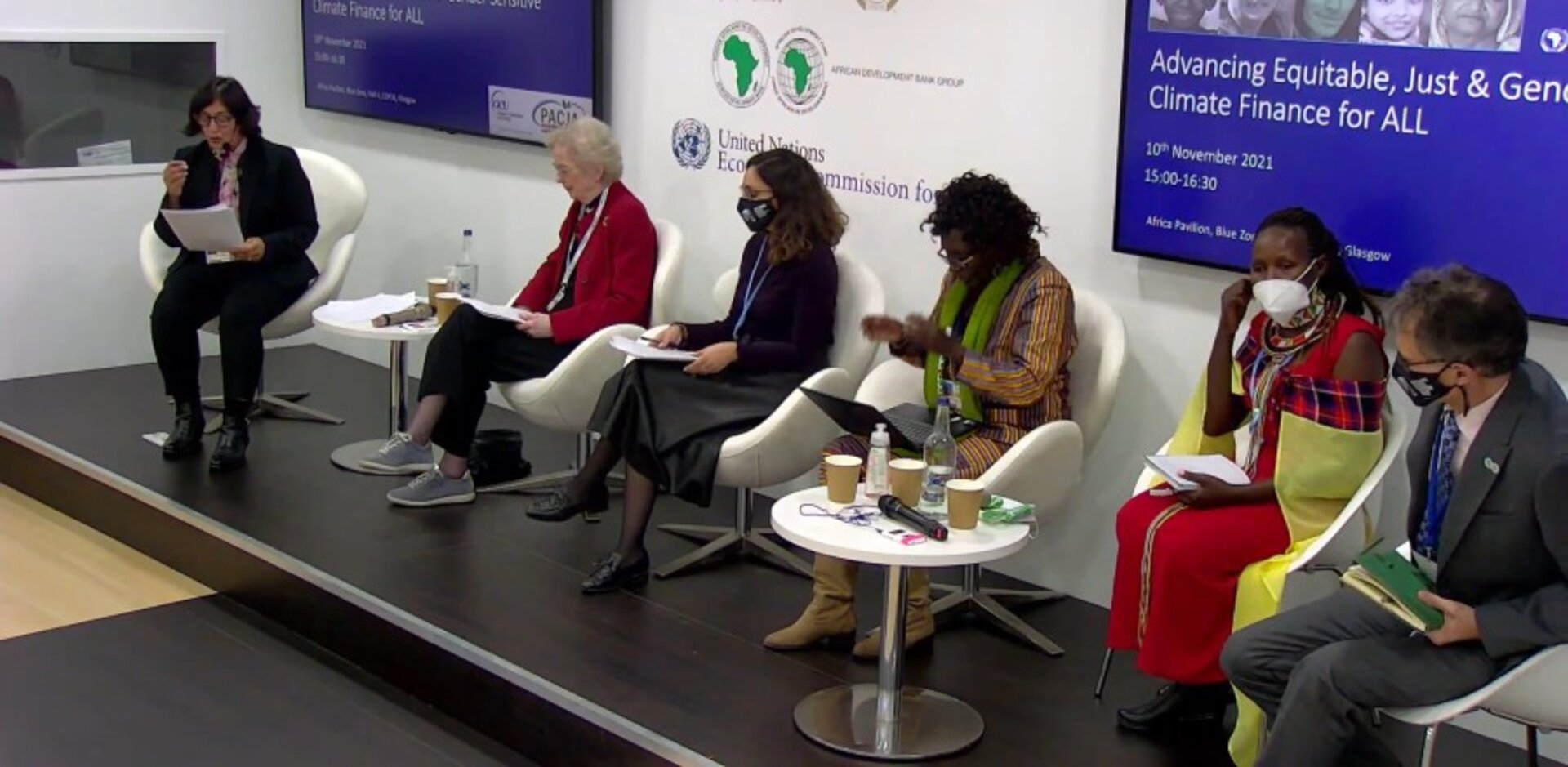Climate finance needs to stop being "gender blind"

Climate finance needs to stop being “gender blind” and be made readily available to women at a grassroots level in climate-hit regions.
This was the takeaway message as Glasgow Caledonian University (GCU) today outlined the work of an initiative that calls on world governments and civil society to make a long-term commitment to support equitable finance – especially for women and children.
The initiative was discussed in the COP26 Blue Zone, where globally influential figures put their heads together during a hybrid event in a bid to identify how the lives of the poorest and vulnerable, who are disproportionately affected by climate change, can be made better.
Facilitated by the University's Centre for Climate Justice, with former Irish President Mary Robinson acting as special advisor, the panel looked specifically at how climate finance can be "strengthened" to ensure "fair and equitable" distribution for all. The African Development Bank and the Pan-African Climate Justice Alliance, partners of GCU in this initiative, leant their weight to proceedings.
The initiative aims to call for governments and civil society in the developed world, and those who can afford it, to make a long-term commitment to provide a sustainable source of finance, addressing the impact of the greenhouse gas emissions caused by the goods and services they buy.
Professor Tahseen Jafry, Director of GCU’s Centre for Climate Justice, said: “New mechanisms and sources of climate finance are urgently required to redress shortfalls in current financial architectures, in particular, shortfalls in climate finance for women and girls.
“It is for these reasons that building resilience to climate change needs to be done in a manner that is gender-sensitive, fair, inclusive, equitable and climate just. While recognising that climate finance is currently not working, particularly for the poorest women and girls, much more emphasis needs to be given to access to, and availability of, such finance to support livelihoods, health and wellbeing.
“In other words, advocating for aligning climate finance with climate needs, particularly for the most vulnerable people and especially women and girls, is more significant now than ever before as the world grapples with two of the major global challenges: COVID-19 pandemic and climate change.”
Salina Sanou, Programme Director Pan-African Climate Justice Alliance, Kenya, said: “The current climate finance guidelines are so stringent they don't allow women at a grassroots level to access it. Today's platform is one way of looking at how we can address this because, at the moment, climate finance is gender blind.”
Gareth Philips, Climate and Environment Finance, African Development Bank, said: “Adaptation projects tend to be economically attractive but not financially attractive, meaning private companies won't invest in them. Women are largely seen as less bankable than men because they don't have the collateral, so they find it difficult to access loans. We want to cut through this bureaucracy. We want to drive private-sector finance into adaptation in a way that is equitable and gender-sensitive.”
Professor Jafry moderated the high-level discussion with major players in the equitable climate-finance debate, including:
- Mary Robinson, Chair of the Elders
- Dr Beth Dunford, Vice President, Agriculture, Human and Social Development, African Development Bank
- Professor Pamela Gillies CBE, Principal and Vice-Chancellor of Glasgow Caledonian University
- Gareth Philips, Climate and Environment Finance, African Development Bank
- Salina Sanou, Programme Director Pan-African Climate Justice Alliance, KenyaJacinta Silakan, The Sang’ida foundation
- Dr Chris K. Kiptoo, CBS the Principal Secretary (PS) for the Ministry of Environment and Forestry, Republic of Kenya
- Salma Kadry, Programme Officer Climate Security and Development, Cairo International Center for Conflict Resolution, Peacekeeping and Peacebuilding, Egypt
